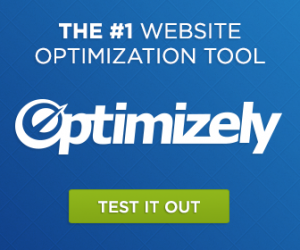Transforming your website into a marketing machine is essential for attracting, engaging, and converting visitors into loyal customers. In today’s digital landscape, your website serves as the cornerstone of your marketing strategy. To achieve this transformation, you must focus on several key elements that work together to create an effective online presence. First and foremost, a well-designed website should have a clear, user-friendly layout that guides visitors seamlessly through their experience. This means intuitive navigation, fast load times, and a responsive design that works across all devices, from desktops to smartphones. A clean and appealing aesthetic can significantly enhance user engagement, encouraging visitors to stay longer and explore your offerings. Incorporating high-quality images and videos can further captivate your audience, showcasing your products or services in an engaging manner. Content is king in the realm of digital marketing. To transform your website into a marketing powerhouse, you need to produce high-quality, relevant content that resonates with your target audience.

This includes informative blog posts, engaging articles, and compelling product descriptions that not only provide value but also incorporate essential keywords for search engine optimization SEO. By optimizing your content for search engines, you can improve your visibility and attract organic traffic. Regularly updating κατασκευή ιστοσελίδων θεσσαλονίκη with fresh content also signals to search engines that your site is active, which can positively influence your ranking. In addition to written content, integrating various multimedia elements, such as infographics, podcasts, and webinars, can enhance your website’s appeal and cater to different learning styles. This diverse content strategy can help establish your brand as an authority in your industry, fostering trust and credibility among your audience. Another crucial component is the incorporation of strong calls-to-action CTAs throughout your website. CTAs encourage visitors to take specific actions, such as signing up for newsletters, downloading resources, or making a purchase. These prompts should be strategically placed and clearly communicated, guiding users towards the next step in their journey.
Testing different CTAs can provide insights into what resonates best with your audience, allowing for continuous optimization. Leveraging social proof can also significantly enhance your website’s marketing effectiveness. Including testimonials, reviews, and case studies can help build trust and demonstrate the value of your offerings. When potential customers see positive feedback from others, they are more likely to feel confident in their decision to engage with your brand. Furthermore, integrating social media and email marketing strategies into your website can enhance its marketing capabilities. Allowing visitors to share content easily on social media platforms can expand your reach and attract new audiences. Similarly, collecting email addresses through sign-up forms can help you nurture leads and maintain ongoing communication with your audience. Personalized email campaigns can keep your brand top-of-mind and encourage repeat visits to your website. Finally, utilizing analytics tools to monitor website performance is essential for continuous improvement. By tracking visitor behavior, conversion rates, and engagement metrics, you can identify areas for enhancement and make data-driven decisions.

